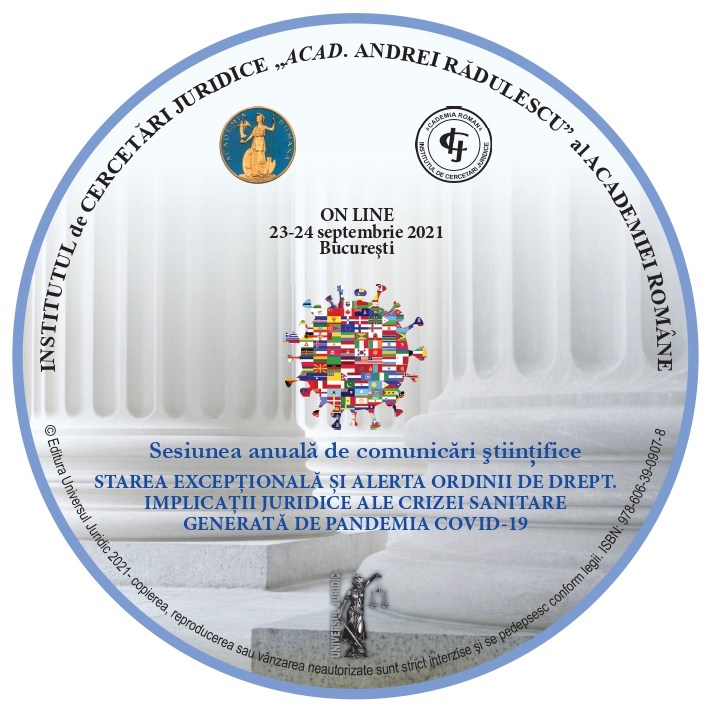
We kindly inform you that, as long as the subject affiliation of our 300.000+ articles is in progress, you might get unsufficient or no results on your third level or second level search. In this case, please broaden your search criteria.

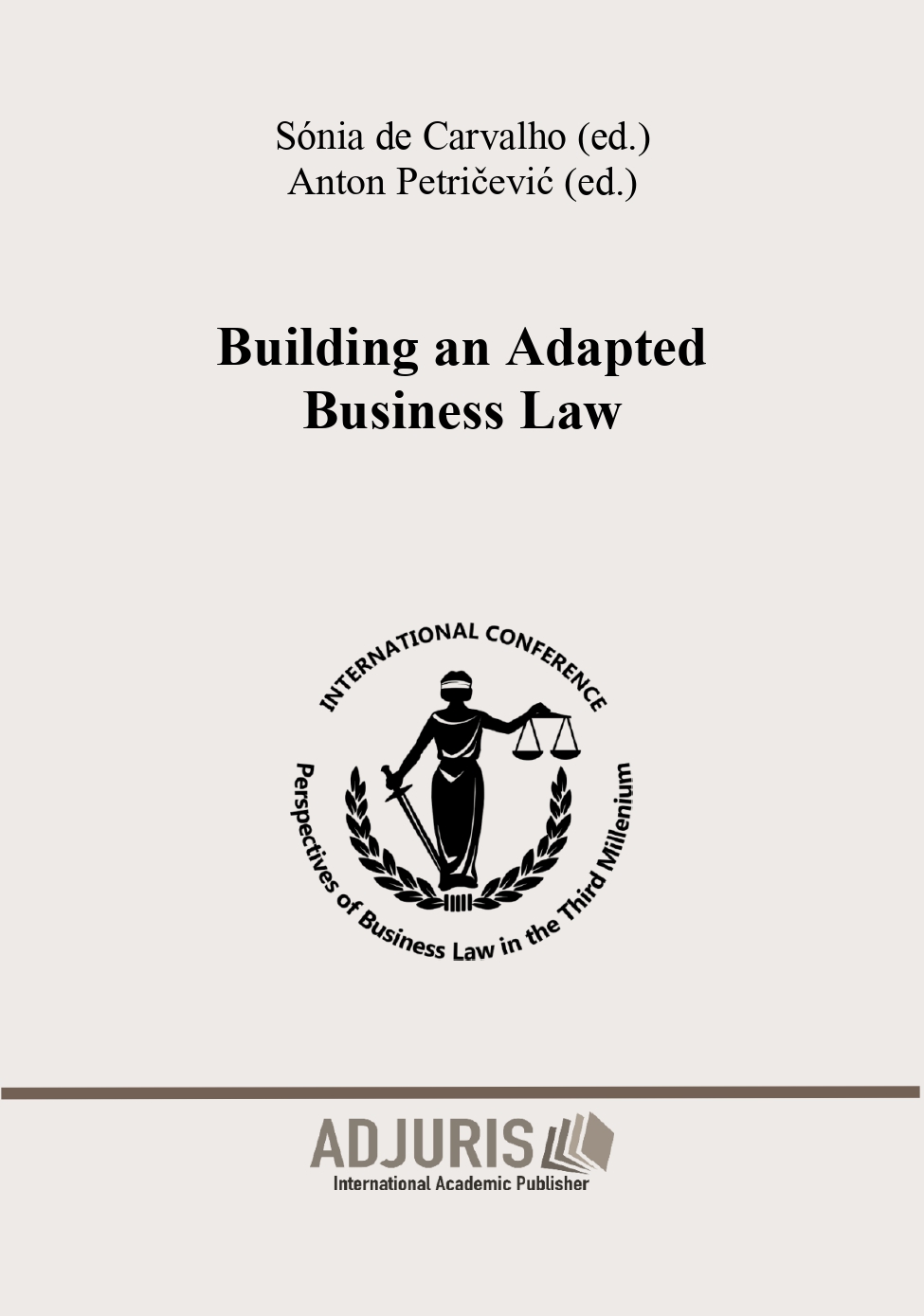
This volume contains the scientific papers presented at the Eleventh International Conference „Perspectives of Business Law in the Third Millennium” that was held on 19 November 2021 in online format on Zoom. The conference is organized each year by the Faculty of Law of the Bucharest University of Economic Studies together with the Society of Juridical and Administrative Sciences. The scientific studies included in this volume are grouped into five chapters: Stop or go back to business as unusual — legal issues impacting businesses during this time; Changes in the legal landscape, regulatory challenges and more; In-depth look at business law topics; European overview of the legal and business considerations. The present volume is addressed to practitioners, researchers, students and PhD candidates in juridical sciences, who are interested in recent developments and prospects for development in the field of business law at international and national level. This book is edited with the support of the Romanian Ministry of Education and Research.
More...
Epidemia COVID-19 wywarła głębokie skutki w różnych dziedzinach życia społecznego, miała też (i ma) głęboki wpływ na prawo – jego tworzenie i stosowanie. Jest to z pewnością nowy, oryginalny i bardzo perspektywiczny obszar badań naukowych. Niniejsza praca – jako jedna z pierwszych monografii na rynku wydawniczym poświęcona badaniom nad prawem i jego zmianami w czasie epidemii – ma szanse stać się ważnym przyczynkiem do dalszych badań w tym obszarze. Składające się na nią opracowania stoją bowiem na wysokim poziomie merytorycznym, są oryginalne, nowatorskie i ciekawe. dr hab. Monika Latos-Miłkowska, prof. ALK Autorzy niniejszej monografii przyjmują perspektywę naukową i społeczną, zadając fundamentalne pytania, na ile poszczególne regulacje prawne związane przeciwdziałaniem COVID-19 mieszczą się w ramach ustalonych zasad demokracji, międzynarodowego porządku prawnego i praworządności. Nie boją się stawiać tez oryginalnych, twórczych i prowokujących do dalszej dyskusji. dr hab. Paweł Nowik
More...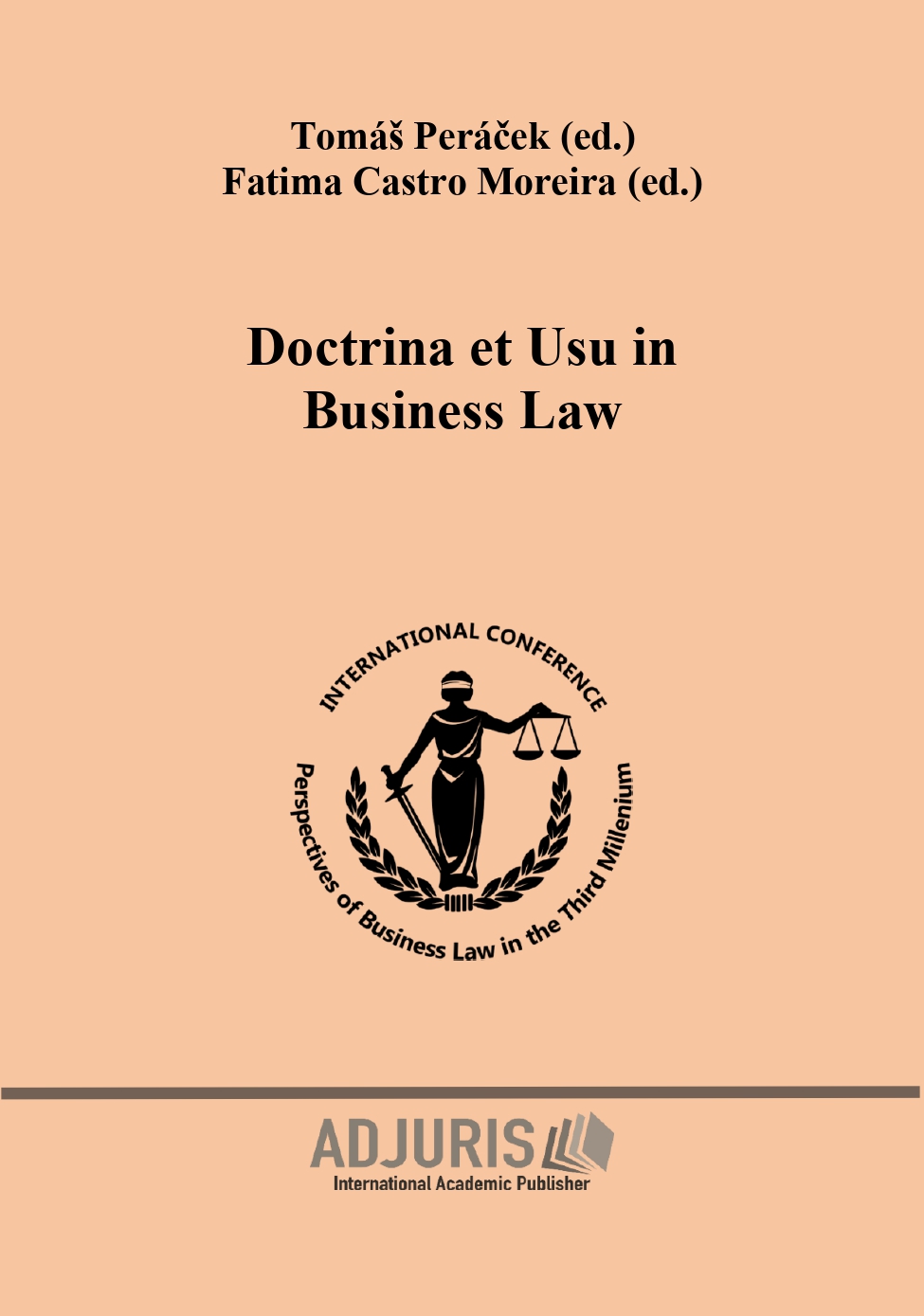
Online transactions are a certainty of the moment in all social and economic fields. Digital economy has been part of everyday normality for a long time. The legislation that regulates legal relations is not updated and there is no clear perspective by which to confirm the imposition of "digital economy law" in society. The acts of commerce, services, and production in which the digital society participates (hard, software, networks and augmented reality) develop, in themselves, a number of legal subjects and a large palette of contractual or tortious civil responsibilities that do not have a clear regulation. Through this research, we are trying to launch a current and forward-looking topic to the public professional debate to lay the foundations for the "Digital Economy Right". The research methods used are observation of flows and case studies of "artificial intelligence" used through software in the private and public economy; reporting of legal subjects involved in legal relations to the legal norm. The implications of the study are relevant for the whole society, but also for legal professionals. The results constitute benchmarks for the debate and drafting of the future legal norms necessary to harmonize the international legislation of classical law with the law of artificial intelligence.
More...
The aim of this paper is to consider the digital identity as a key element of the service-oriented state (e-governance). In the first section the background of developing the service-oriented state in the EU and Ukraine are discussed. It has been established that with the spread of Covid-19, The Government of Ukraine declared on course towards of paperless public services. Due to the full-scale escalation of conflict between the Russian Federation and Ukraine on February 24, 2022, the Government of Ukraine speed- up the processes of transforming public administrative services into e-services. Digital identity is supposed to be one of the elements of e-governance alongside with remote identification (biometric authentication), the digital money, secure payments and online banking etc. In the second section the category of digital identity and close related categories are revealed. The differences between digital identity, digital profile (account), avatar and electronic entity are proved. On the basis of the conducted research, the features and constituent elements of digital identity were determined and proposals were developed to improve the legislation in Ukraine. The necessity to study the digital identity as the essential component of service-oriented state, online banking, e-commerce and in light of the War in Ukraine and seeking way of renovation legislation is founded.
More...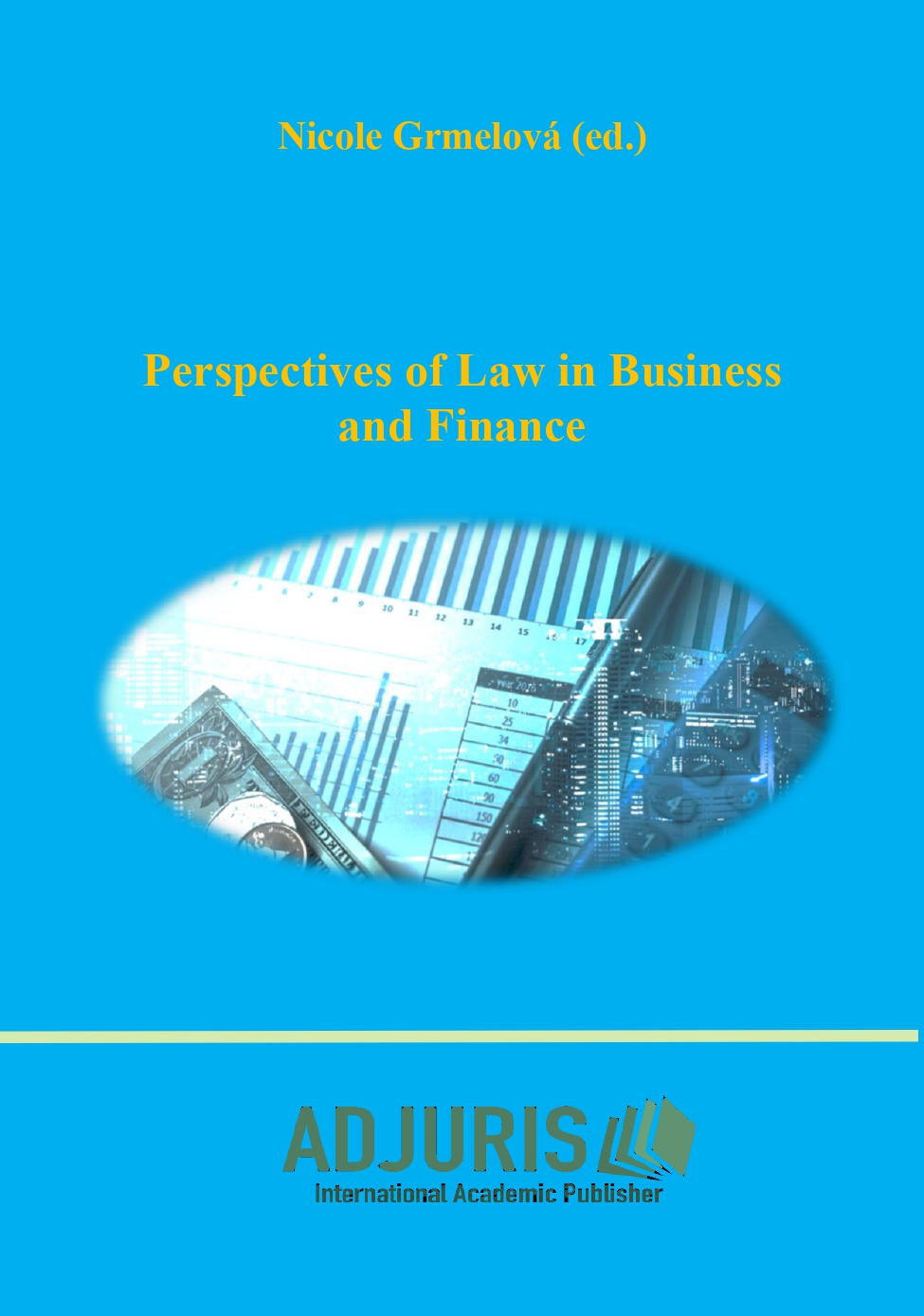
The Czech legislation recognises certain types of “environmental liability”, including the obligations from various fields of law – a special obligation to prevent and remedy environmental damage, and administrative, criminal, and civil law liabilities. Unlike in case of share deals, where the liability remains with the acquired company, in case of asset deals the transfer of environmental liability depends on more factors, such as the type of liability and specific circumstances under which the liability originated. Both the seller and the purchaser may aim to minimize the impacts of threatening environmental liability by various contractual instruments. The paper deals with the contractual risk allocation for both parties of an asset deal, including the analysis of the environmental liability under the Czech law, and specific legal instruments of risk allocation, such as indemnifications, representations and warranties, or deferred payment of purchase price.
More...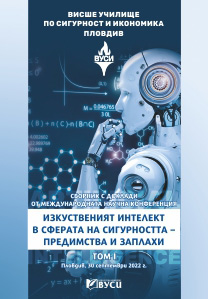
The article examines the human dimensions of the legal profession without prejudice to the undoubtedly beneficial conveniences of modern life associated with technological and informational advances. The legal profession as a human and only human activity is the subject of reflections in the exhibition. With an attempt to positively argue the claim that artificial intelligence could not replace the activity of the lawyer. The exposition is without pretensions to be exhaustive.
More...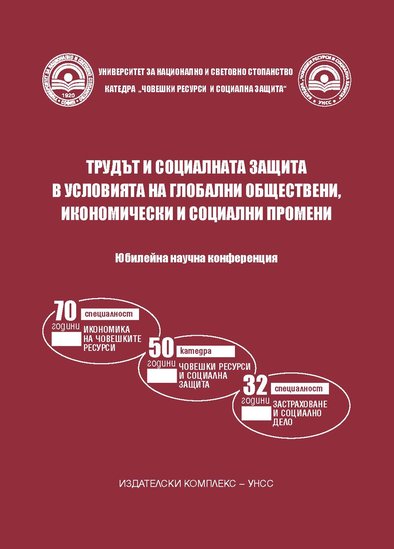
Social entrepreneurship is the object of increased and lasting interest because it provides many opportunities to solve pressing social problems. This type of entrepreneurship combines entrepreneurial initiative, business activity and social causes. Many of the problems that social entrepreneurs try to solve are often the focus of attention of local authorities. This is the reason that makes the effective interaction between local authorities and social entrepreneurs key to the success of both social enterprises and local authorities in solving a number of social and environmental challenges, especially in crisis conditions.
More...
The collection contains reports presented at scientific conference "Challenges to legal regulation in Bulgaria". The conference was held on October 31, 2023 in the conference halls of the university in parallel modules. Scientists, practitioners, doctoral students and students participated, a total of over 60 people in five scientific fields: Challenges to international law and EU law in Bulgaria; Challenges to private law regulation in Bulgaria; Historical and economic aspects of state regulation in Bulgaria; Challenges to public law regulation in Bulgaria; Challenges to criminal law regulation in Bulgaria.
More...
The study is devoted to the issue of the applicant's right to costs in the annulment of a normative administrative act contested before the court in the course of the court proceedings. More specifically, the research provides an answer to the question whether the cancellation of a regulatory administrative act can be equated to the withdrawal of an administrative act within the meaning of Art. 156 of the Code of Administrative Procedure and whether normative administrative acts can be withdrawn at all. A critical analysis of the legislation is made and redactions de lege ferenda are proposed. The research presents author's analyzes and conclusions, as well as doctrinal opinions and judicial practice on the issues raised.
More...
The 36th International RAIS Conference on Social Sciences and Humanities was held at The Erdman Center, 20 Library Place, Princeton, NJ 08540, USA, on June 6-7, 2024, and was organized by the Research Association for Interdisciplinary Studies. RAIS Conference Proceedings are published with ISSN 2578-8574.
More...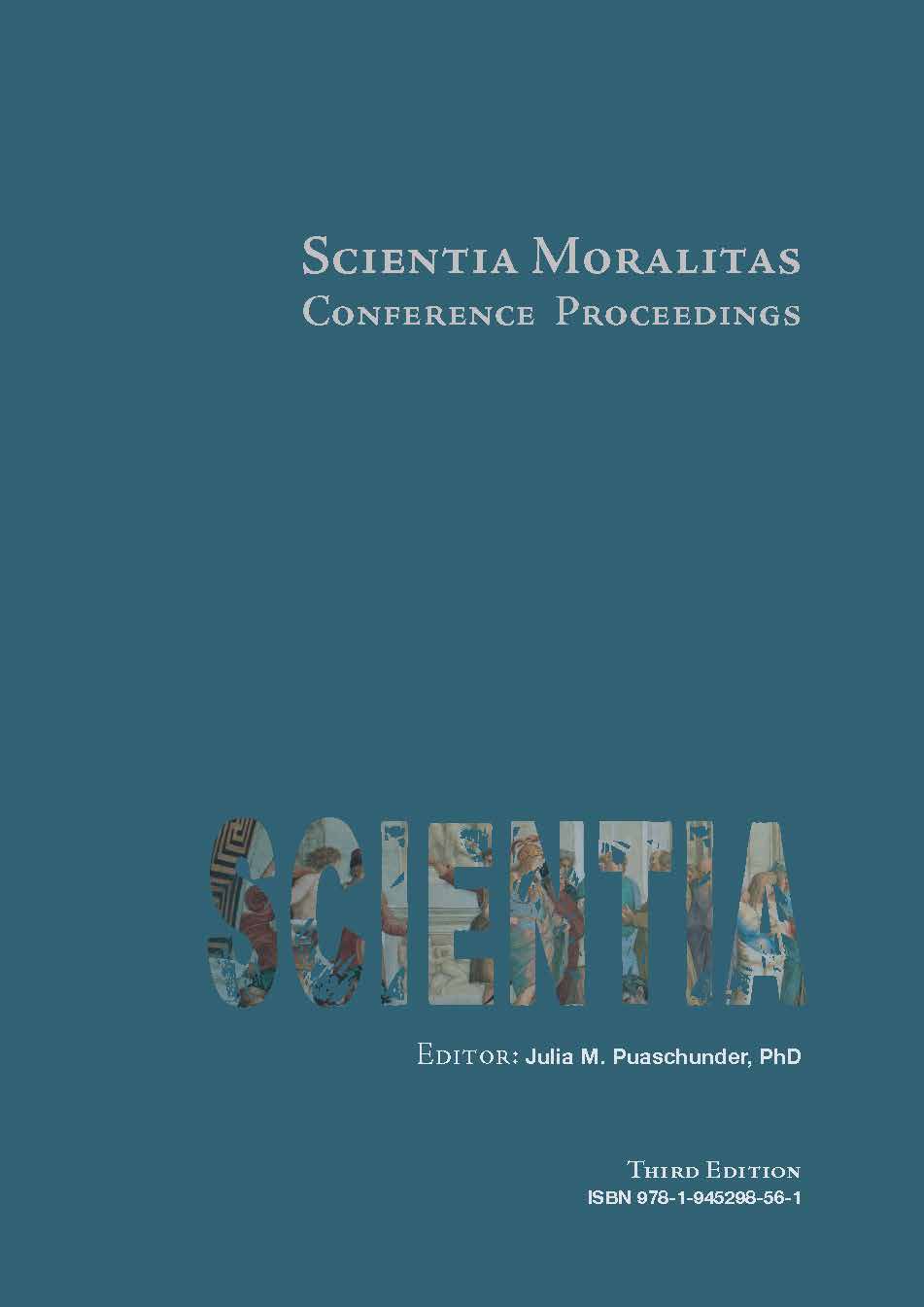
These proceedings represent the work of contributors to the Scientia Moralitas Conference held online on February 19-20, 2023. The conference was organized by the Scientia Moralitas Research Institute and the Research Association for Interdisciplinary Studies. The objective of this conference is to promote multidisciplinary research in social sciences, humanities, and ethics and facilitate discussions on contemporary real-world challenges.
More...
These proceedings include the papers accepted for the Scientia Moralitas Conference on February 15-16, 2024, organized by the Research Association for Interdisciplinary Studies.
More...
The safeguarding of public order and safety faces escalating challenges due to evolving threats and social changes. This collective work explores the primary obstacles confronting public order and safety, including technological disruptions, transnational crime, and community trust deficits. Furthermore, it evaluates strategic responses, such as the integration of advanced technologies, cross-border cooperation, and community-focused policing. The findings highlight the need for a multidisciplinary approach to address these challenges effectively and provide actionable insights for policymakers and practitioners seeking to enhance public safety resilience.
More...
In this article, we set out to carry out an analysis of the notion of „principles of public service” both in doctrinal terms and in terms of normative regulation. We also made a small foray into the evolution of the legal institution and the notion of public service principles. Particular attention was paid to the definition and enumeration of the principles of public service in both the legislation of the Republic of Moldova and Romania, and also the role that this institution has within the branch of administrative law.
More...
Тhe provision of Art. 146, Parа. 3 of the Obligations and Contracts Act regulates one of the special grounds for repayment of the surety. It is present when, due to culpable actions of the creditor, the guarantor cannot intervene in his rights and, accordingly, could not receive satisfaction from the debtor.
More...
The outgoing European Commission created 850 new legal obligations for the enterprises. One of them, The Adequate Minimum Wage Directive, continues to cause heated debates, and one of the parties in the social dialogue in Bulgaria has already objected officially its transposition. The reasons can be found both in the choice of a legal instrument and in the national specific characteristics.
More...
Under the established form of rationalized parliamentarism in Bulgaria, the legislative activity of the parliament is inextricably linked with its ability to choose a government with which it will work during its mandate. In case of impossibility after three unsuccessful attempts, the National Assembly was dissolved and the mandate of the people's representatives was terminated. Changes to the Constitution at the end of 2023 were intended to solve the problem of parliamentary crises and the formation of a government. The idea is that through the newly introduced continuous mandate of the National Assembly, legislative activity can continue even in the absence of consensus regarding the executive branch. This change aims to maintain the representativeness and functionality of parliament during periods of political instability. However, this raises significant questions about the legitimacy of Parliament to legislate without a robust executive, as the separation of powers is a fundamental principle of democratic governance. The lack of connection between politics and power can disrupt the decision-making process for the management of the state and society. This is a complex issue with potential consequences for the democratic process in Bulgaria.
More...
The report examines the principle of officially beginning in individual proceedings under the Administrative Procedure Code as part of the administrative process. The application of the principle as a basic principle of executive activity and its connections with other basic principles of the administrative process guaranteeing the right to good administration are indicated.
More...
This paper summarizes the trends, existing guidelines in documents issued by various agencies and organisations, as well as applicable legal norms in the field of intellectual property law and copyright particularly, its protection, eligible objects, and authorship in the context of generating creative outputs, including software code, with the assistance of artificial intelligence applications.
More...